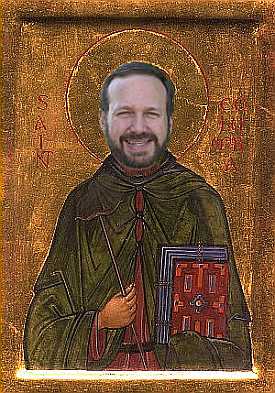The worst teaching we get here in America is to always stick up for ourselves. From the time we take our first steps, the mantra we hear over and over is to stand up for our rights and stand against “the bad guy.”
But in the rush to always reinforce the American collective mentality, found in our forefathers as they battled British “oppression,” humility has taken a devastating hit. Somehow, we lost the way to fight for what is good while simultaneously being humble people. Worse, our lack of humility causes us to gloss over atrocities, both individual and collective.
And no entity in America has suffered more for this than the Christian Church.
Here are three little words you almost never hear in the average church:
We were wrong.
Or the individual version:
I was wrong.
Our inability to confess to failures continues to compromise the effectiveness of the Church in our country. Swept along by the spirit of the age, the Church here has forgotten what it means to be humble.  As a result, like other failed institutions wracked by hubris, the Church has been lumped with all the pride-filled transgressors and relegated to meaninglessness in the lives of most Americans. And for those people who have not thrown the Church on the dung heap, usually Christians, they continue to be slaves of their own pride, unable to say those three little words.
As a result, like other failed institutions wracked by hubris, the Church has been lumped with all the pride-filled transgressors and relegated to meaninglessness in the lives of most Americans. And for those people who have not thrown the Church on the dung heap, usually Christians, they continue to be slaves of their own pride, unable to say those three little words.
We live in a cynical age. I would argue that our cynicism is borne out of witnessing far too many instances of pride run amok. When that pride is only reinforced in the wake of obvious failure, when confession and remorse should be the response—and yet are not—we throw another log on the fires of “wisdom” and harden ourselves further, like Damascus steel, over the flames.
When was the last time a church confessed publicly that…
…all the money dumped into the new youth program hasn’t made the teens better disciples?
…for all the talk of community, people in the church were getting no help finding work or were unable to pay their bills?
…the enormous building campaign was fueled more from a need to outdo neighboring churches than to lift up Jesus?
…the beloved special speaker brought in for a yearly teaching series is doctrinally wonky?
…it personally failed the young person who wound up pregnant/in jail/homeless/drug-addled?
…the latest spiritual bandwagon it jumped on went off a cliff?
…the nationally known Christian, whose ministry it supported unquestionably, needed to be questioned more throughly, long before the scandal broke?
Why is it we are so afraid to say we blew it?
Why is so much swept under the proverbial rug?
I know so many charismatics who have come to me over the years glowing with some exciting “word of knowledge” they received from some “Spirit-filled” leader or traveling prophecy show and yet that “amazing word” never came to pass. And still those same people are the first ones in line to grab another “word.”
Some bizarre denial mechanism exists in Evangelicalism that takes all that failure and walls it off in our psyches as if it never happened. This hardens some to the point they become unable to discern anything. Others wind up wrecked on the rocks of those failures, and in the midst of everyone around them denying the problem, end up walking away from the Church—and often from God.
How is it that we cannot weep with those who have been burned by the inability of the Church to say We were wrong? Are we THAT filled with pride?
People keep wondering how we can fix the horrible mess we find ourselves in as Christians in America. Confessing our pride and our failures would be a great start. They used to call that repentance, though I know that word is not popular when applied to us. Usually we reserve it for the other guys. You know, the sinners.
A nation of people who are not humble will be humbled. A Church that asserts pride-driven power will be brought low. God is not mocked, and placing ourselves on a platform on His level, demanding rights only He can possess, is a sure recipe for a butt kickin’—ours.
You and I are dust. Remembering that would go a long way toward fixing a world of problems.
And maybe, just maybe, if we were a lot more humble, people who are dying for real answers to real problems would again look to America and the American Church for solutions.
Every revival starts in the ashes of humility.


